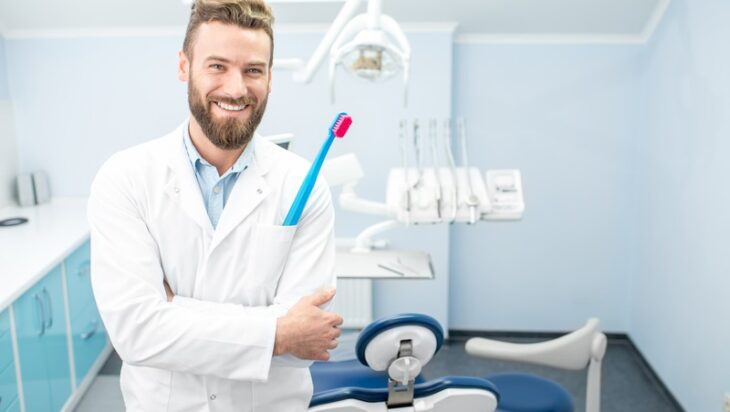Maintaining optimal oral health isn’t just about brushing and flossing regularly. Visiting the dentist for professional care is essential. Many people wonder how often they should schedule these visits, especially when balancing a busy life. Regular dental check-ups help prevent issues and ensure a healthy smile. This article discusses the ideal frequency of dental visits, factors influencing how often they should occur, and the benefits they offer. Discover why scheduling those appointments can save not just your teeth but also your peace of mind.
Frequency of Dental Visits
On average, visiting the dentist every six months is recommended for most individuals. This biannual schedule allows for thorough cleanings and early detection of potential dental issues. Of course, this standard can vary based on your specific dental health needs. While some individuals with exceptional oral hygiene might visit less often, those with dental challenges may require more frequent appointments. Personalized care ensures that each patient receives the attention they need to maintain optimal oral health.
Key Factors Influencing Visit Frequency
Several variables can affect how often a person might need to visit the dentist. Understanding these factors can help tailor a dental care routine that best suits individual needs:
-
History of dental issues – Past problems with cavities or gum disease may necessitate more frequent visits.
-
Daily oral care – Good personal hygiene could result in fewer required visits.
-
Age considerations – Children and seniors often require more regular dental assessments.
-
Underlying health conditions – Conditions such as diabetes can impact dental health significantly.
-
Smoking habits – Smokers are at an elevated risk for oral health issues, impacting visit frequency.
What to Expect During a Dental Appointment
Knowing what happens during a dental visit can ease apprehensions. Typically, a routine appointment involves:
-
Thorough examination of teeth and gums
-
Professional cleaning to remove plaque and tartar
-
X-rays, if needed to inspect areas not visible to the eye
-
Discussion about improving oral care practices at home
Appointments keep the mouth healthy and provide an opportunity to address any dental concerns that might arise.
Importance of Regular Check-ups
The significance of keeping up with dental appointments can’t be understated. Frequent check-ups offer numerous advantages:
-
Prevention of tooth decay and gum disease
-
Early detection of oral cancers
-
Management of ongoing dental conditions
-
Boost overall oral health through professional cleanings
-
Personalized guidance for optimal home care
Advanced Dental Solutions for Restoration
For those in need of restorative procedures, dental technology offers innovative options. Individuals looking to replace missing teeth might consider options such as implants crowns in Harrisonburg. This choice provides both functional and aesthetic benefits, seamlessly blending with natural teeth.
Tips for Maintaining Oral Health
Maintaining oral health between dental visits is crucial. Implementing a solid home routine ensures that teeth and gums remain in good condition. Consider these tips for effective oral care:
-
Brush teeth twice daily using fluoride toothpaste
-
Floss to remove plaque from areas brushing can’t reach
-
Limit intake of sugary snacks and beverages
-
Utilize mouthwash for added protection against bacteria
-
Ensure a balanced diet with adequate hydration
Personalized Cosmetic Dental Options
Many individuals focus not only on their health but also on the appearance of their teeth. Cosmetic dentistry offers solutions for those seeking aesthetic enhancements. Addressing gaps, for example, can be achieved through dental bonding for gaps. This technique uses a tooth-colored resin to fill in gaps, resulting in a more uniform look. Such procedures can be a simple way to boost confidence and improve one’s smile.
Situations Requiring More Frequent Visits
In certain circumstances, more frequent dental check-ins are advised. These scenarios include:
-
Pregnancy, due to changes in oral health from hormonal shifts
-
Existing health issues like diabetes or heart conditions
-
Significant dental work or recent oral surgery
-
Heavy use of tobacco products
-
Signs of developing oral health problems
Consultations with dental professionals can outline an appropriate schedule based on these and other factors. Another effective solution includes all-on-4 dental implants, designed for those who require full-arch restoration. These treatments can greatly enhance both oral function and appearance.
Red Flags Indicating a Dentist Visit
Certain warning signs suggest that a dental visit shouldn’t be delayed. Key signs include:
-
Toothache persisting for more than a few days
-
Bleeding from gums during brushing or flossing
-
Chronic bad breath that’s unexplained
-
Changes in tooth alignment or looseness
-
Sensitivity to hot or cold not responding to dental products
These symptoms could indicate more serious underlying conditions and are best assessed by a dental professional.
Closing Remarks
Regular dental visits are essential for maintaining both oral health and overall well-being. While the general guideline of twice a year suits many, individual needs may vary. Keeping up with appointments not only prevents problems but also paves the way for a lifetime of healthy smiles. By prioritizing professional care and following recommended maintenance, individuals can enjoy optimal dental health and aesthetic benefits for years ahead.




